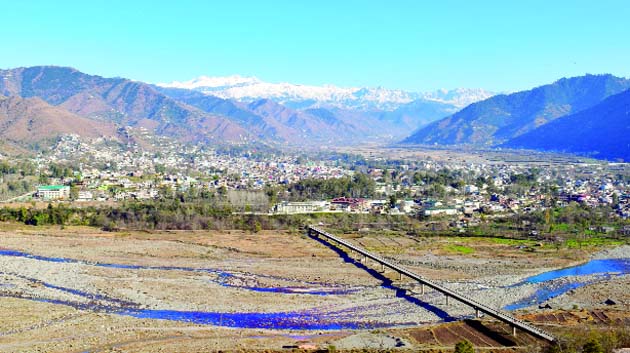Ghulam Jallani
Poonch, once known as Haveli due to its settlements in the shape of havelis, has tragically seen these architectural marvels reduced to ruins, both literally and figuratively. For more than seven decades, District Poonch has languished in neglect, bearing the brunt of inadequate education and healthcare facilities. The district’s residents, who have endured these hardships for far too long, are left with no choice but to migrate to Rajouri, Jammu, or Srinagar in search of better opportunities and essential services. The situation demands immediate attention from policymakers and authorities to rectify this long-standing injustice.
According to the 2011 census, Poonch District had a population of over 476,000 people, but sadly, it has remained disconnected from the progress witnessed by other parts of the region. The lack of quality educational institutions is a pressing concern, forcing countless young minds to seek education elsewhere. As a result, talented individuals from Poonch are compelled to leave their homes and families behind, perpetuating a cycle of brain drain that deprives the district of valuable human resources.
The National Family Health Survey (NFHS-5) conducted recently sheds light on the dire state of healthcare in Poonch. Shockingly, the survey reveals that the district has one of the highest infant mortality rates in the region. Lack of access to adequate healthcare facilities, including well-equipped hospitals and skilled medical professionals, contributes to this alarming statistic. As a consequence, families facing medical emergencies are left with no option but to travel long distances to seek proper treatment, often with fatal consequences.
The repercussions of neglecting District Poonch are far-reaching. The lack of quality education hampers the overall development of the region, hindering the potential for economic growth and social progress. Moreover, the absence of adequate healthcare services poses a severe risk to the well-being and lives of the residents. These cumulative factors exacerbate the already challenging living conditions, forcing individuals and families to migrate to neighboring districts, further deepening the socio-economic divide.
Poonch, a border area, suffers from inadequate infrastructure facilities, adding to the plight of its people. The continuous threat of cross-border tensions and sporadic conflicts further impedes the development of essential infrastructure. The neglect of Poonch’s infrastructure not only deprives its residents of basic amenities but also compromises their safety and security.
The lack of adequate roads, bridges, and transportation facilities severely hampers connectivity within the district and with neighboring regions. This not only affects trade and commerce but also restricts the movement of people, hindering their access to education, healthcare, and employment opportunities. The absence of reliable and well-maintained road networks adds to the isolation of communities, perpetuating their marginalization.
Furthermore, the absence of reliable and uninterrupted power supply is another critical issue faced by Poonch. Frequent power outages disrupt daily life, affect businesses, and hamper the functioning of essential services such as hospitals and educational institutions. This lack of access to a basic necessity significantly hampers the district’s progress and economic growth.
Additionally, the dearth of proper sanitation facilities is a pressing concern. Lack of access to clean water and adequate sanitation infrastructure not only poses health risks but also undermines the dignity and well-being of the residents. It is disheartening to witness the absence of essential amenities that are taken for granted in other parts of the country.
The people of Poonch have endured these challenges for far too long. Their resilience and determination in the face of such adversity deserve recognition and support from the authorities. The government must prioritize the development of robust infrastructure in Poonch, investing in road networks, bridges, reliable power supply, and clean water and sanitation facilities. These initiatives will not only enhance the quality of life for the residents but also pave the way for economic growth and social progress.
Moreover, given Poonch’s strategic significance as a border area, it becomes even more critical for the government to prioritize the development of infrastructure to ensure the safety and security of its residents. Strengthening border infrastructure, including surveillance systems and border roads, will provide a sense of security to the people and facilitate the smooth functioning of defense forces in the region.
Poonch District has waited for far too long to receive the attention it deserves. The government must acknowledge its responsibility to uplift this neglected region. Through strategic planning, robust policies, and targeted investments, we can reverse the current trend of migration and create an environment where people are not compelled to leave their homes in search of basic amenities. It is time for Poonch District to take its rightful place among the developed regions, providing its residents with the education and healthcare facilities they need and deserve. The time has come to restore the glory of Poonch, reviving its Havelis not just in memory but in the form of modern, sustainable infrastructure that caters to the needs of its residents and propels the district towards a brighter future.


